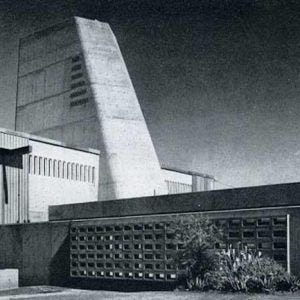Australian company Silex Systems has signed a commercialisation and licence agreement for the Silex uranium enrichment technology with General Electric (GE). The agreement – which requires government approval – provides for a phased approach to the commercialisation of the Silex (Separation of Isotopes by Laser EXcitation) technology.
Under the terms of the agreement, GE would fund the phased development activities, which would be built in the USA, most probably at GE’s existing nuclear energy headquarters and technology site in Wilmington, North Carolina. The first phase, which is expected to take approximately three years, consists of the development of a test loop to test the efficiency of engineering-scale Silex equipment. Following successful completion of the test loop, the lead cascade programme, also known as the pilot plant programme, will involve the construction and operation of a small production plant. If the lead cascade confirms the efficiency and reliability expected of the technology, then GE would begin deployment of commercial Silex enrichment plants.
“This is a defining moment for Silex Systems” said Michael Goldsworthy, CEO of Sydney-based Silex Systems.“We are delighted to have secured General Electric as our commercialisation partner for the Silex technology. Despite the size differences, GE and Silex share a crucial corporate trait – a dedication to technological innovation. While Silex developed the technology concept, GE has the required technological and commercial capabilities to take it to the next level and beyond,” he added.
Andy White, president and CEO of GE’s nuclear business, said: “GE is very excited about the transaction and the potential of this innovative technology. We are looking forward to the completion of its development and bringing this product to the global marketplace.” He added: “By acquiring the exclusive rights to complete the development and commercial deployment of Silex’s enrichment technology, GE will be in a strong position to support anticipated demands for enriched uranium.”
In addition to funding the technology development programme, GE will make the following payments to Silex:
- $5 million upon receipt of preliminary US government approval.
- $15 million on receipt of final government approval.
- $15 million upon successful completion of the test loop programme.
- $20 million upon successful completion of the lead cascade programme.
Upon deployment of commercial Silex uranium enrichment plants, and for as long as the technology is used, Silex will receive a base royalty of 7% of revenues generated from enrichment services using the Silex technology, and an additional royalty of up to 5% (taking the total royalty to a maximum of 12%) based on the total cost of deployment. The lower the cost of deployment, the higher the royalty.
The announcement comes just over three years after Usec withdrew its support for the project in order to “focus all of its advanced technology resources on the demonstration and deployment of Usec’s American Centrifuge uranium enrichment technology.” Usec had been funding the project since 1996 but concluded the technology was unlikely “to meet Usec’s needs and it would not be a prudent investment for its shareholders.” Though Usec acknowledged that the Silex process is capable of enriching uranium, it said the technology “is still in the early stage of development and faces numerous technological hurdles that must be overcome.”
According to Silex Systems, the Silex uranium technology is the world’s only third generation laser-based uranium enrichment process under development. The company believes it could be significantly more cost-effective compared with other enrichment technologies, due to the high efficiency afforded by laser technology.






